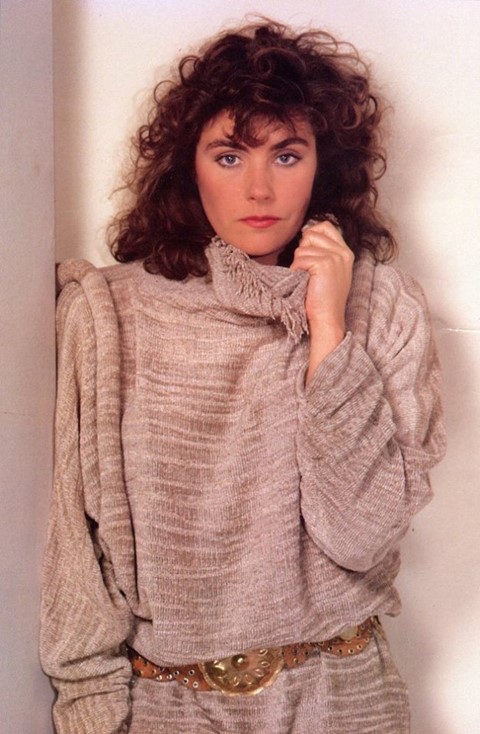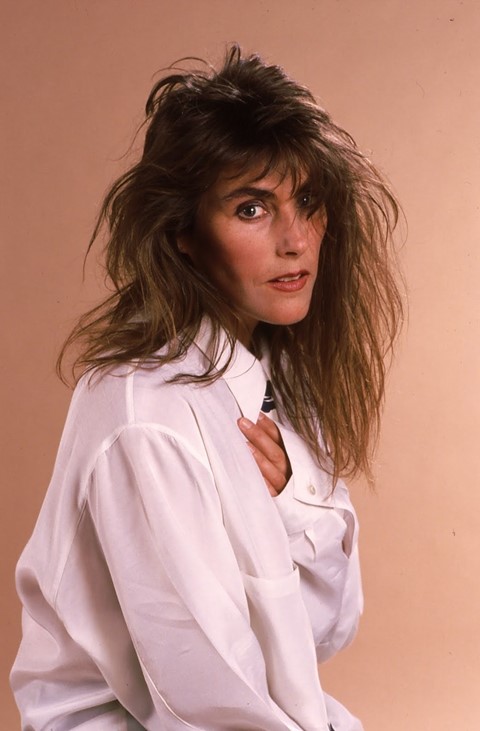This week marks the anniversary of Laura Branigan’s untimely death. Here, we chronicle her life and legacy in songwriting and style alike
Let’s face facts: there are very few singers who possess a vocal ability to rival the gut-wrenching force of Celine Dion’s. Laura Ann Branigan, however, was one of them; when she covered Jennifer Rush’s 1984 hit The Power of Love on her 1987 album Torch, Dion’s efforts to usurp Branigan’s unbelievable rendition of the song four years later were, arguably, futile (despite taking it to number one in the charts).
American-born Branigan never received the acclaimed recognition she deserved. Although predominantly known for covering Umberto Tozzi’s Italo-Disco banger Gloria (1982) and her chart-topping single Self Control (1984), the wonder of the recording artist’s discography extends far beyond these three songs alone, imbuing the electronic pop genre with an uniquely emotive and guttural sound. Tragically, after taking a long hiatus from her career, she died suddenly in August 2004 from an undiagnosed illness. To mark the anniversary of her passing, we chronicle her life and legacy.

Seminal Moments
Born on July 3 1952 in Armonk New York, Branigan showed an interest in performance from a young age, attending the Academy of Dramatic Arts in Manhattan as a teen. After graduating, she got her big break as backing vocalist for Leonard Cohen’s 1977 european tour, ultimately signing to Atlantic Records via the label’s founder Ahmet Ertegun as a solo artist in the early 80s. “I first heard Laura Branigan sing live in my brother Nesuhi’s apartment,” said Ertegun during a 2005 interview. “I immediately realised that she had a great pop voice, in the classical sense. Laura had an instinctive feel for music and melody and her delivery was sensational.”
Her first self-titled album Branigan was released in 1982, including her first songwriting venture – I Wish We Could Be Alone – and the single Gloria, which spent 36 weeks in the chart. The English-spoken version of Gloria gained Branigan a Grammy Nomination for Best Female Pop Vocal Performance in 1983, alongside Olivia Newton-John and Linda Ronstadt. Two years later, she was to release her third studio album Self-Control, containing a second Umberto Tozzi cover, Ti Amo and an original hit Satisfaction. Self-Control – another cover of an Italo-Disco track by the artist Raf – would go on to become Branigan’s most celebrated work, and was especially popular in the emerging club scene of 1980s West Germany. (The video was banned by MTV, as it was deemed too sexually charged).
By the mid-1990s, Branigan’s sound had fallen out of fashion. Unable to keep up with the changing trends, she faded into relative obscurity, taking a hiatus from her career and devoting time to caring for her husband Larry Kruteck, who was diagnosed with terminal cancer. In was in the early 00s – just as Branigan had announced that she was ready to start recording again – that tragedy struck, and she suddenly passed away in her sleep on 26 August 2004 from an undiagnosed brain aneurysm. Her life is annually celebrated on this day by friends, family and fans in the ‘Spirit Of Love Memorial Gathering’ in home state of New York.

Defining Features
In a 2002 ‘Where Are They Now’ interview with People Magazine, Laura Branigan spoke about her look in the video for Gloria: “I have on black Spandex pants and knee-high boots,” she says. “It’s hysterical.” Indeed, the late-singer’s style was very much in line with the height of 1980s kitsch; oversized chenille jumpers offset by huge clip-on earrings, and ample doses of polyester, sequins and gold lamé for various red carpet appearances and on-stage performances. Branigan also had a distinctive mane of thick brunette hair, either permed into curls or coiffed into a shaggy mullet. Her untamed eyebrows framed large blue eyes, with her petite nose and mouth, giving her the look of a catalogue model, rather than an out-and-out sex symbol.
She’s an AnOther Woman Because...
“I want to touch people’s hearts, to get right down to their souls,” said Branigan. “When you’re on stage, the audience becomes your other half. It’s the ultimate high you can reach as a musician – an incredible feeling. And no matter where I am it’s still the same; there’s a reason we call music the universal language.” Certainly, Branigan’s legacy should not be underestimated; for despite her work now mostly featuring on film soundtracks (see I, Tonya as a recent example) we wager that you will be unable to listen to one of her songs without experiencing the intense emotional ephiphany she described above.
